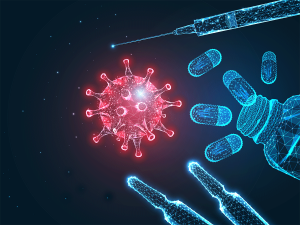This is educational content and not intended to treat or cure any ailments, if you have any concerns about your wellbeing after your vaccine please seek advice from your healthcare provider.
As an increasing percentage of the population are receiving the COVID-19 vaccine, the advice surrounding ensuring our bodies are in the best state possible to receive the jab is varied and often lacking research. This is still a new area and therefore our understanding is fairly limited, however, we are able to apply known techniques to support our immune system at this time.
Deficiencies and vaccinations
Poor immune responses are frequently associated with low nutritional status and deficiencies in micronutrients such as vitamins A, B6, B9, B12, C, D and E and the minerals zinc, selenium, iron and copper. Each of these micronutrients contribute to the normal functioning of the immune system in response to infections and it is key to maintain sufficient intake of these nutrients. This is true in all age groups but particularly in the elderly.
So how do these impact the immune system?
-
Vitamin A plays a key role in regulating our immune response on a cellular level,
-
Vitamin B6 supports the biochemical reactions that occur in a functioning immune system, while also supporting the nervous system and red blood cell production,
-
Vitamin B9 and B12 deficiencies are associated with reduced resistance to infections, as they support the normal function of immune cell activity
-
Vitamin C is quickly depleted during times of illness and stress so maintaining an adequate intake of vitamin C through diet or supplementation is important during these times
-
Vitamin D supports the normal function of immune cells that fight infection
-
Vitamin E is an antioxidant that is a key player in our immune system by managing the production of effective immune cells
-
Zinc is crucial for the normal development and multiplication of our cells, including those that regulate our immune system
-
Selenium is an antioxidant, reducing the inflammatory response while aiding our normal immune response
-
Iron deficiency is associated with a weakened immune system, as it is vital for the growth and development of immune cells
-
Copper is a trace mineral found in all body tissue and is supportive of our normal immune response.



